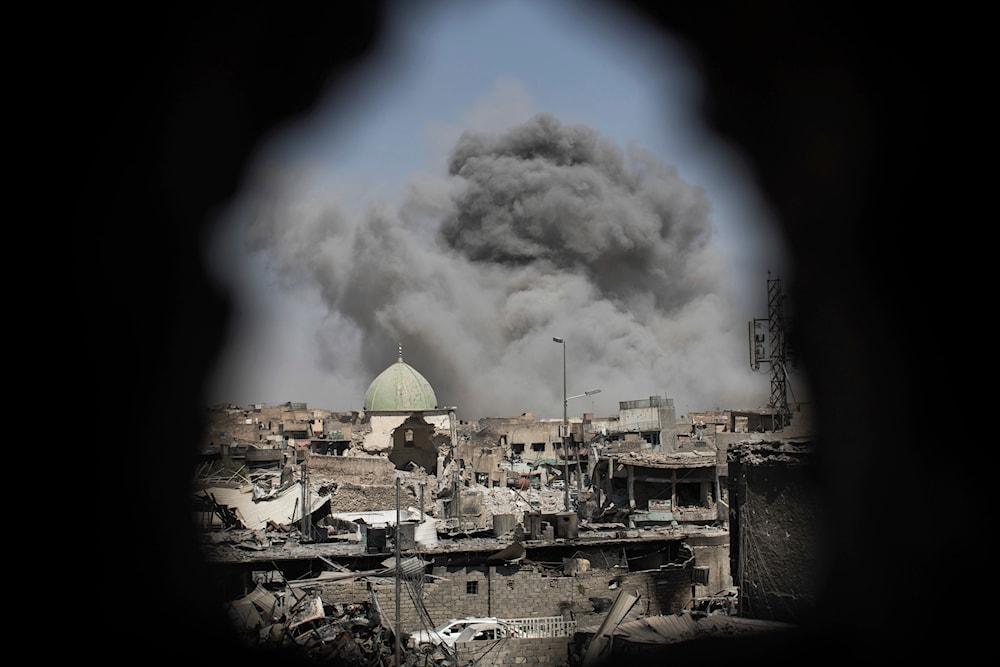UN finds 5 bombs in Iraqi mosque planted 5 years ago by ISIS
The discovery was found during restoration work being done at Mosul's Al-Nuri mosque and the adjacent 12th-century minaret nicknamed Al-Hadba or the "hunchback" which were destroyed by ISIS.
-

A bomb explodes behind the al-Nuri mosque complex, as seen through a hole in the wall of a house, in Mosul, Iraq, June 29, 2017. (AP)
During restoration work by UNESCO in the historic Al-Nuri mosque in Mosul, northern Iraq, the United Nations reported finding five bombs hidden in a wall that had been put there years earlier by ISIS.
Five "large-scale explosive devices, designed to trigger a massive destruction of the site," were located in the prayer hall on Tuesday per a representative for the agency to AFP.
The restoration work was being done at Mosul's Al-Nuri mosque and the adjacent 12th-century minaret nicknamed Al-Hadba or the "hunchback" which were destroyed by ISIS.
In a statement, UNESCO said, "The Iraqi armed forces immediately secured the area and the situation is now fully under control," noting that one bomb was diffused, but four others "remain connected to each other" and are expected to be cleared in the following days.
"These explosive devices were hidden inside a wall, which was specially rebuilt around them: it explains why they could not be discovered when the site was cleared by Iraqi forces" in 2020, UNESCO added.
Read next: Why the US should leave Syria: War on the Rocks
The discovery has been confirmed by the Iraqi General Tahseen al-Khafaji, who is the spokesperson for the Joint Operations Command of various Iraqi forces and who identified them as "several explosive devices from ISIS jihadists in Al-Nuri mosque."
The Al-Nuri mosque is the location where then leader of ISIS Abu Bakr Al-Baghdadi proclaimed the establishment of the "caliphate" in July 2014.
ISIS proclaimed Mosul their "capital" in 2014 before they were driven out three years later by Iraq's Popular Mobilization Forces in 2017.

 2 Min Read
2 Min Read








